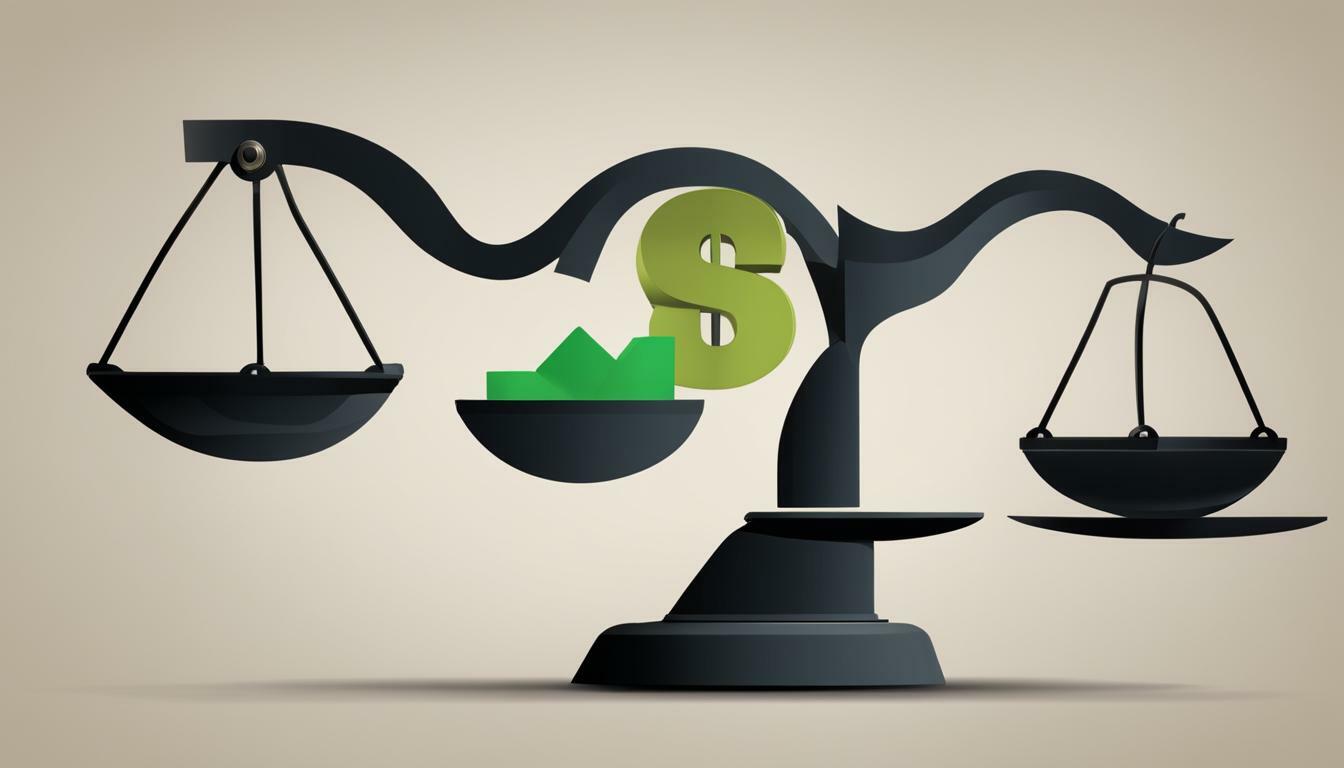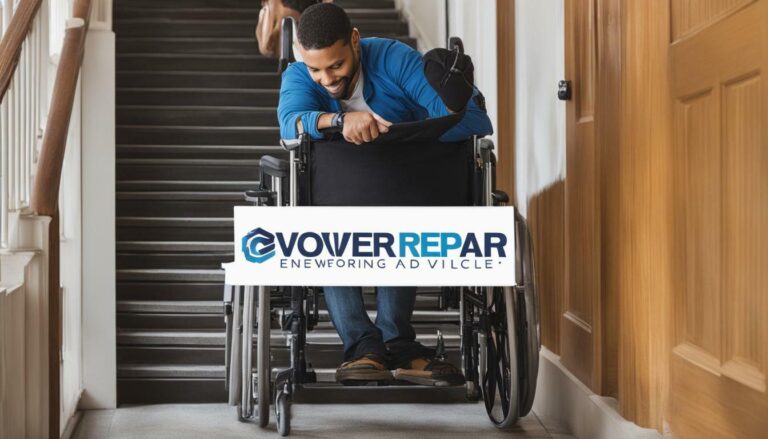Credit Repair vs. Debt Consolidation: Which One Works for You?

Making an informed decision between credit repair and debt consolidation is crucial for your financial well-being and long-term goals. If you find yourself struggling with debt, it’s essential to explore the options available to you to improve your credit score, reduce your debt, and ultimately achieve financial freedom.
When it comes to managing your debt, credit counseling and debt consolidation are two common approaches that can help you regain control of your finances. Credit counseling involves working with a certified credit counselor to create a debt management plan, consolidating your unsecured debts into manageable monthly bills that can be paid off within three to five years.
On the other hand, debt consolidation involves the opening of new credit to pay off multiple existing debts. This approach can potentially lower your overall repayment costs, decrease your monthly payments, and reduce the number of bills you have to manage. However, it’s important to note that debt consolidation may come with higher interest rates and the risk of losing assets if payments are not made on time.
Another option to consider is debt settlement, which involves negotiating with your creditors to pay off a reduced amount of what you owe. This option is typically best for individuals with long overdue debts who are trying to avoid bankruptcy.
Key Takeaways:
- Credit counseling and debt consolidation are two options for individuals struggling with debt.
- Credit counseling involves working with a certified credit counselor to create a debt management plan.
- Debt consolidation involves opening new credit to pay off multiple existing debts.
- Debt consolidation may lower your overall repayment costs and decrease your monthly payments.
- Debt settlement is an alternative option for individuals with long overdue debts.
Ultimately, the best choice between credit repair and debt consolidation depends on your specific financial situation and goals. It’s important to carefully consider the advantages and considerations of each method and seek professional advice if needed. By taking the necessary steps to improve your credit score and reduce your debt, you can work towards achieving financial health and the freedom that comes with it.
🚨 TUIC Errors + Low Credit Score?
CreditScoreIQ helps you build credit faster by reporting utility bills to all 3 bureaus—while you dispute errors.
Start Building Credit Today →Understanding Credit Repair and Debt Consolidation
Credit repair and debt consolidation are two strategies that can help individuals overcome financial challenges and improve their financial situation. When faced with mounting debt, it can be overwhelming to know where to turn for assistance. That’s where credit counseling and debt consolidation come into play.
Credit counseling involves working with a certified credit counselor who can provide guidance and support in navigating your financial difficulties. These professionals are trained to assess your financial situation, analyze your credit report, and develop a personalized debt management plan. This plan consolidates your unsecured debts, such as credit card bills and medical expenses, into manageable monthly payments that can be paid off within three to five years.
On the other hand, debt consolidation involves obtaining new credit, such as a personal loan or a balance transfer credit card, to pay off your existing debts. This strategy can help lower overall repayment costs, decrease monthly payments, and reduce the number of bills you need to manage. However, it’s important to note that debt consolidation may come with higher interest rates, and failure to make timely payments can result in the potential loss of assets.
It’s worth mentioning that there is also an alternative option called debt settlement, which involves negotiating with your creditors to pay less than the total amount owed. Debt settlement is typically recommended for individuals with long overdue debts who want to avoid bankruptcy. This approach can provide some financial relief, but it may also have negative consequences for your credit score.

When considering credit repair and debt consolidation, it’s essential to evaluate your specific financial situation and goals. There is no one-size-fits-all solution, and what works for someone else may not be the best choice for you. Seek professional advice, explore your options, and make an informed decision that aligns with your financial health and long-term objectives.
Advantages and Considerations of Credit Repair
Credit repair offers numerous benefits, from boosting your credit score to reducing your debt burden, ultimately leading to greater financial freedom. By addressing and resolving errors or negative items on your credit report, credit repair can help improve your creditworthiness and increase your chances of getting approved for loans or credit cards with favorable terms. It also provides the opportunity to negotiate and settle outstanding debts, potentially reducing the total amount owed.
One of the key advantages of credit repair is its potential to improve your credit score. A higher credit score can open doors to better financial opportunities, such as lower interest rates on loans and credit cards, which can save you money in the long run. Additionally, as your credit score improves, you may qualify for higher credit limits, giving you more financial flexibility.
Reducing your debt burden is another significant benefit of credit repair. By working with a professional credit counselor, you can develop a personalized debt management plan that consolidates your debts into a single monthly payment. This simplifies your financial obligations and makes it easier to manage your finances. With a structured repayment plan, you can gradually eliminate your debts within three to five years, paving the way for a debt-free future.
The Importance of Professional Credit Counseling Services
When considering credit repair, it is crucial to seek the guidance of certified credit counselors who can provide expert advice and support throughout the process. Professional credit counseling services can help you navigate the complexities of credit repair, ensuring that you take the most effective steps to improve your credit score and reduce your debt burden.
These counselors have in-depth knowledge of credit laws and regulations and can assist you in disputing inaccuracies on your credit report, negotiating with creditors, and creating a comprehensive plan to achieve your financial goals. With their expertise, you can make informed decisions and avoid common pitfalls that may hinder your progress.

| Advantages of Credit Repair | Considerations of Credit Repair |
|---|---|
| 1. Improved credit score | 1. Time-consuming process |
| 2. Reduced debt burden | 2. Potential fees for credit counseling services |
| 3. Increased financial opportunities | 3. Not a quick fix; requires patience and commitment |
| 4. Personalized debt management plan | 4. Results may vary depending on individual circumstances |
| 5. Expert guidance from certified credit counselors | 5. May impact credit temporarily during the repair process |
In conclusion, credit repair offers a range of advantages, including the potential to improve your credit score, reduce your debt burden, and increase financial freedom. However, it is important to consider the time commitment, potential fees, and the need for professional guidance when embarking on the credit repair journey. By making informed decisions and working with certified credit counselors, you can take control of your financial situation and pave the way to a brighter financial future.
Benefits and Factors to Consider in Debt Consolidation
Debt consolidation can be an effective strategy to reduce debt, simplify your financial obligations, and move closer to financial freedom. By consolidating multiple debts into one, you can streamline your monthly payments, making it easier to manage your finances and stay on track. However, before diving into a debt consolidation plan, it’s important to consider the benefits and factors involved.
Simplifying Your Finances
One of the key benefits of debt consolidation is simplifying your financial obligations. Instead of juggling multiple bills and due dates, you’ll have just one payment to make each month. This can greatly reduce the stress and confusion that often comes with managing multiple debts. With a structured plan in place, you can stay organized and focused on paying down your debt.
Lower Interest Rates and Monthly Payments
Another advantage of debt consolidation is the potential for lower interest rates and monthly payments. By consolidating your debts, you may be able to secure a loan or credit card with a lower interest rate than what you’re currently paying. This can save you money in the long run and help you pay off your debt more quickly. Additionally, having a single, fixed monthly payment can make budgeting easier and more predictable.
Considerations: Interest Rates and Asset Risk
While debt consolidation offers numerous benefits, it’s important to consider potential drawbacks as well. One consideration is the possibility of higher interest rates. Depending on your credit score and financial situation, you may not qualify for the lowest interest rates available. It’s crucial to carefully review and compare the terms and conditions of any consolidation offers to ensure you’re getting the best deal.
Additionally, it’s important to be aware of the potential risk of asset loss if you’re unable to make your consolidation payments. In some cases, lenders may require collateral, such as your home or car, to secure the consolidation loan. If you default on your payments, these assets could be at risk of repossession or foreclosure. It’s essential to assess your financial stability and ability to make consistent payments before pursuing debt consolidation.
| Pros | Cons |
|---|---|
| Streamline multiple debts into one payment | Potential for higher interest rates |
| Potential for lower interest rates and monthly payments | Risk of asset loss if payments are missed |
| Easier budgeting and financial management | May not be suitable for everyone’s financial situation |

By carefully considering your financial situation and goals, you can make an informed decision between credit repair and debt consolidation, ultimately paving the way towards improved financial health, reduced debt, and the pursuit of financial freedom.
Credit counseling and debt consolidation are two viable options for individuals struggling with debt. Credit counseling involves working with a certified credit counselor to overcome financial challenges and create a debt management plan. This plan consolidates unsecured debts into manageable monthly bills that can be paid off within three to five years.
Debt consolidation, on the other hand, involves opening new credit to pay off multiple existing debts. It can lower overall repayment costs, decrease monthly payments, and reduce the number of bills to manage. However, it’s important to note that debt consolidation may come with higher interest rates and the potential loss of assets if payments are not made.
Another option to consider is debt settlement, which involves negotiating with creditors to pay less than what is owed. Debt settlement is best suited for individuals with long overdue debts who want to avoid bankruptcy.
In the end, the best choice between credit repair and debt consolidation depends on your specific financial situation and goals. It’s important to assess factors such as your current debt load, credit score, interest rates, and the potential impact on your assets. Seeking professional guidance from credit counseling services can help you make an informed decision that aligns with your financial goals.
FAQ
What is credit counseling?
Credit counseling involves working with a certified credit counselor to overcome financial challenges and create a debt management plan. This plan consolidates unsecured debts into manageable monthly bills that can be paid off within three to five years.
What is debt consolidation?
Debt consolidation involves opening new credit to pay off multiple existing debts. It can lower overall repayment costs, decrease monthly payments, and reduce the number of bills to manage.
What are the advantages of credit counseling?
Credit counseling can help improve credit scores, reduce overall debt, and achieve financial freedom. It also provides professional guidance and support throughout the credit repair process.
What are the benefits of debt consolidation?
Debt consolidation can help reduce debt, simplify monthly payments, and achieve financial freedom. However, it’s important to consider potential higher interest rates and the risk of asset loss if payments are not made.
How do I choose between credit counseling and debt consolidation?
The best choice depends on your specific financial situation and goals. Assess your debt, credit score, and ability to make monthly payments to determine which option will work best for you.
Ready to Improve Your Credit?
Disputing TUIC errors is step one. Step two? Boost your score by reporting utility payments with CreditScoreIQ.
Get Started Now (Only $1 Trial) →3-bureau reporting • $1M identity insurance • Dark web monitoring



